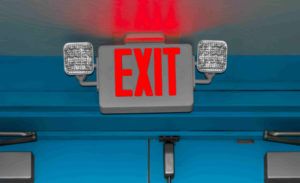If it’s your first time navigating the business-for-sale marketplace you may have noticed something that sets it apart from almost every other situation where something is for sale. Everything is a carefully guarded secret.
Business listings are vague and don’t disclose the name or location of the business.
Listings are very basic and don’t give you much in the way of details about a specific business.
When you call on a business, the broker will continue with the vague information unless you are willing to give up some information about yourself (like your name and permanent address) and sign a nondisclosure agreement (NDA).
What gives? How am I supposed to find a business if no one will tell me which businesses are actually for sale?
An existing business can’t be sold like most other things because an existing business exists in a world of powerful misconceptions. Those misconceptions are that a business for sale is a business on the brink of failure. When the average person sees a for-sale sign on a business door, they automatically assume that the business is in dire straits. Why would anyone sell a successful business, right?
Well, there are a lot of reasons. Maybe the current owner is ready to retire or has their heart set on a new life adventure that will mean they can no longer run the business. Perhaps the current owner started or bought this business with a specific set of goals, and now that those goals have been achieved it’s time to move on to another project. Sometimes owners have something occur in their personal lives that will make it difficult to maintain the responsibilities of ownership and so they’d like to leave the business in good shape and go attend to what they need to.
It’s actually relatively rare for a faltering, disaster of a business to be sold. In situations that dire most choose to lock the doors, cut their losses and walk away.
What does that mean for business buyers? Most businesses for sale are great business opportunities.
To remain great opportunities, those businesses need to be protected. Those powerful misconceptions about a business for sale can cause massive problems for an existing business if they simply stick a for-sale sign on the door. The entire staff can panic and quit. Vendors can cancel contracts. Current and prospective customers can choose to do their business elsewhere.
A business is protected throughout the sale process by keeping the for-sale status confidential. The only people who can know the business is for sale are the seller, the brokers involved, prospective buyers and their experts (think attorneys and CPAs) who have signed the appropriate nondisclosure agreement.
What does this means for you as a buyer? You will have to use vague business listings to do a cursory search. When a listing seems to fit with what you’re looking for you will have to give out a tiny bit of information about yourself (that helps to identify you as an individual) before you can be given potentially damaging information about a business on the market – namely it’s status as a business for sale.
Here’s what you can’t do. You can’t change the industry standard NDA to suit your liking. You can’t disclose what businesses you’re looking at to your neighbor or the guy in line with you at the coffee shop. You have to play by the rules that everyone does so businesses can stay in good shape while they are being sold.
Are you considering buying a business and want to know more about the confidentiality of the process? Do you have questions about what signing the NDA means for you? Ask us! Leave any questions or comments and we would be happy to help.
Michael Monnot
941.518.7138
Mike@InfinityBusinessBrokers.com
5111 Ocean Boulevard, Suite E
Siesta Key, FL 34242
www.InfinityBusinessBrokers.com










